Reassurance…”the action of removing doubt and fear.” Important when interacting with people with dementia? Absolutely. In a confused state of mind, with memory loss included, there is no question that our dear friends with dementia face doubt and fear. Yet, Lady-Links are able to bring reassurance to the dear friends they visit, creating an environment of trust in which everyone feels encouraged and valued.
We will be the first to admit that we are not caregivers and that our responsibilities with our dear friends are different from those amazing family members or professional caregivers who must address health concerns and procedures.
However, that being said, we still have a responsibility to reassure our dear friends during our hour-long visits that they are safe with us and that they are in a nonthreatening environment. How do we do that? Here’s three tips we use at every visit to reassure those precious ladies.
Tip #1 – Be cheerful. Lady-Links greet the dear friend by name and with a big smile. That cheerfulness sets the tone for the visit, dispelling the tense atmosphere that might have existed just moments before we arrived. The husband of one of our dear friends always “warns” us in whispered words when we arrive that “she’s having a terrible day.” And he’s probably right. Alzheimer’s is a difficult, progressive disease that puts his wife in a state of confusion and mistrust much of the time. But when she sees our smiles, hears us say how glad we are to see her, and feels our comforting hugs, she welcomes us. Lady-Links maintain that level of cheerfulness throughout the visit and it makes a difference. This is not new information…the psalmist wrote about this in Proverbs 17:22 “A cheerful heart is good medicine…”. Cheerfulness transitions into fun, and we do have fun at each of our visits!
Tip #2 – Build confidence. Lady-Links visits include an activity that is carefully selected for each dear friend that we visit. We know that she will be able to engage in the activity with success. We have made an effort to choose something that is of interest specifically to her and is within her capabilities to contribute to its completion. In some cases, this means that the craft we’re working on has been partially completed before the visit, allowing for the “easy” parts to be added during the visit. With some of our dear friends we work on crafts, but we have other dear friends who either are not interested in crafts or they are at the stage in the progression of demenia that even the simplest craft would be too difficult. With those friends, we have found other activities to build confidence such as through the use of music or with a “show and tell” of an object already made.
Tip #3 – Be complimentary. Positive reinforcement works wonders with our dear friends. We are generous with our compliments and work “behind the scenes” to be certain of a favorable outcome with our activities. We guide, we encourage, and we model the behavior that we want duplicated. Our conversation is uplifting and positive. We do not correct when our dear friend makes a mistake. We simply move forward, providing assistance. During a visit when we were making flower arrangements, our dear friend placed one of the flowers in her coffee cup rather than in the vase. I just happened to be taking a picture at the time and caught the mistake on camera (look carefully at the picture below). When I sat down, I realized the mistake and simply said something like, “Let’s try this pretty flower in the vase with the others” and moved it there. Then I followed up with a compliment, “Oh that looks beautiful. What a great job you’ve done.” I removed her coffee cup from the table and made a mental note that we needed to finish our refreshments before starting our activity to help avoid future mistakes.
Compliments can be as simple as a “great job” comment or by displaying what they have made and letting them see the effect their work has on others. We have involved our dear friends in making cookies, filling bags with candy, and making valentines to give to others in our community for special holidays. Always, the recepients have made delightful responses giving our dear friends positive reinforcement for something they have accomplished. Compliments add value and respect to the lives of our dear friends.
Reassurance is simply a way of providing support that makes the person feel secure and significant. Cheerfulness, confidence-building, and giving compliments are ways you can invest in the lives of your friends with dementia to help reassure them. When that happens, you’ll find that fear and doubt will be replaced with love and laughter. We did!
Lady-Links…Linking Love, Laughter and Life
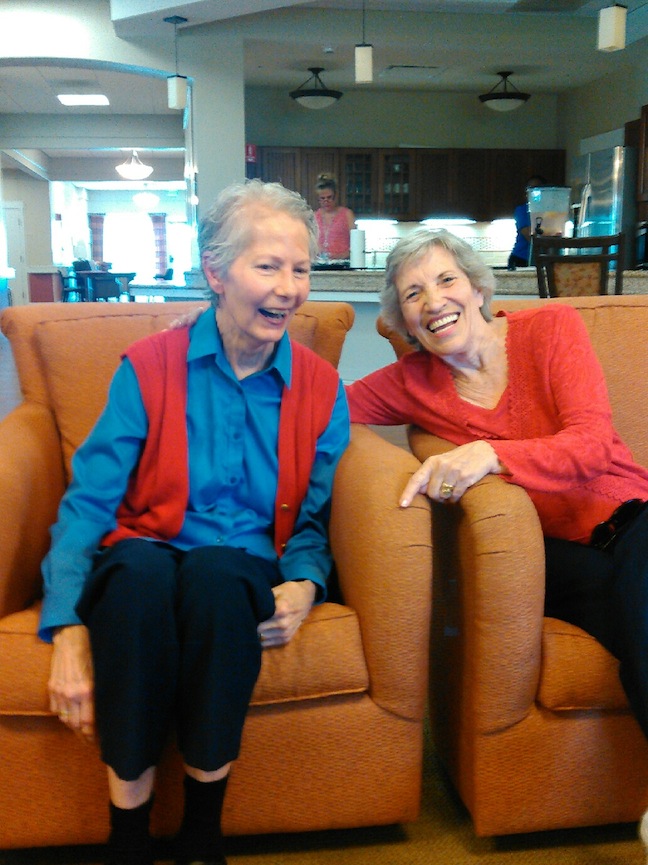
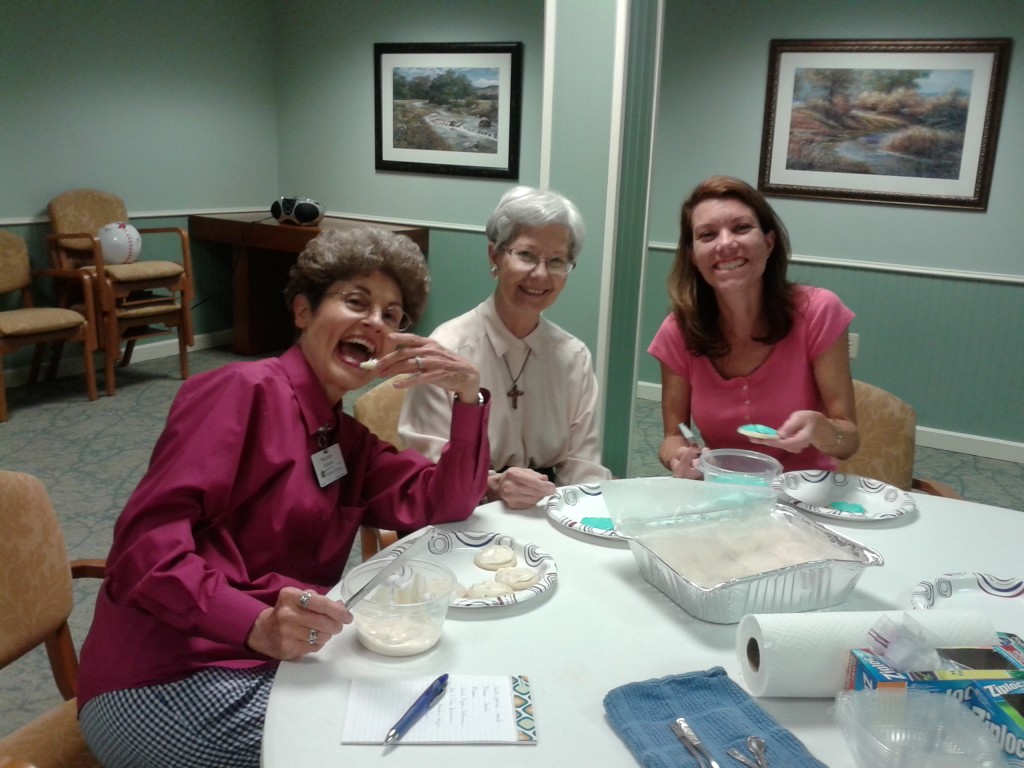
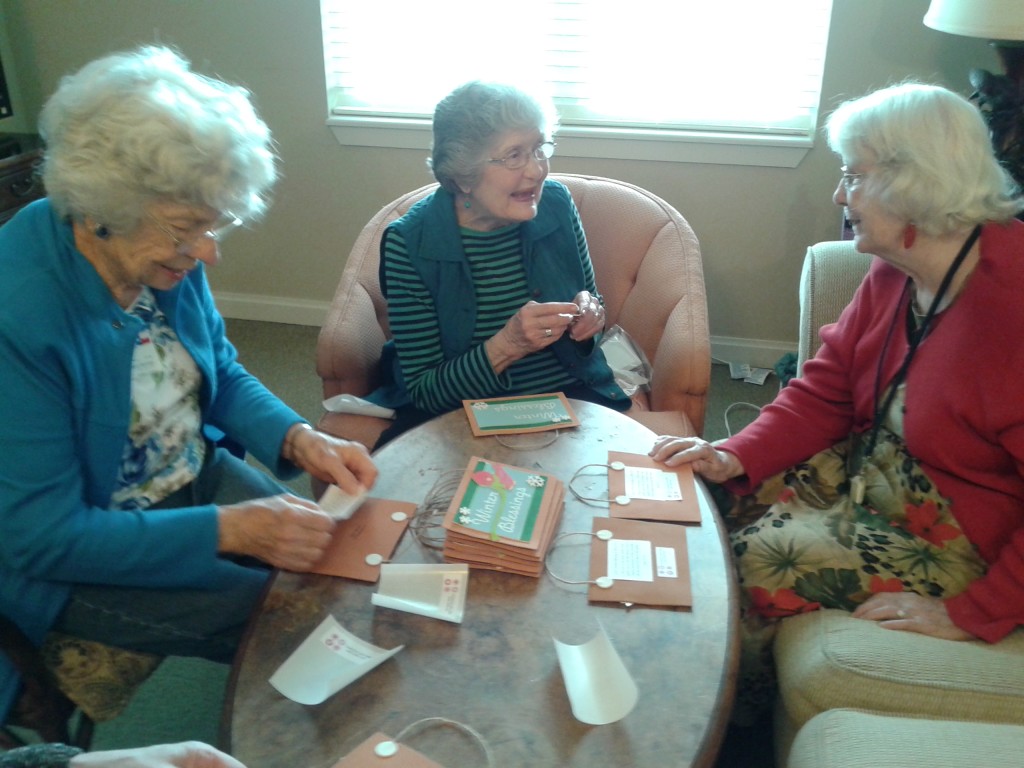
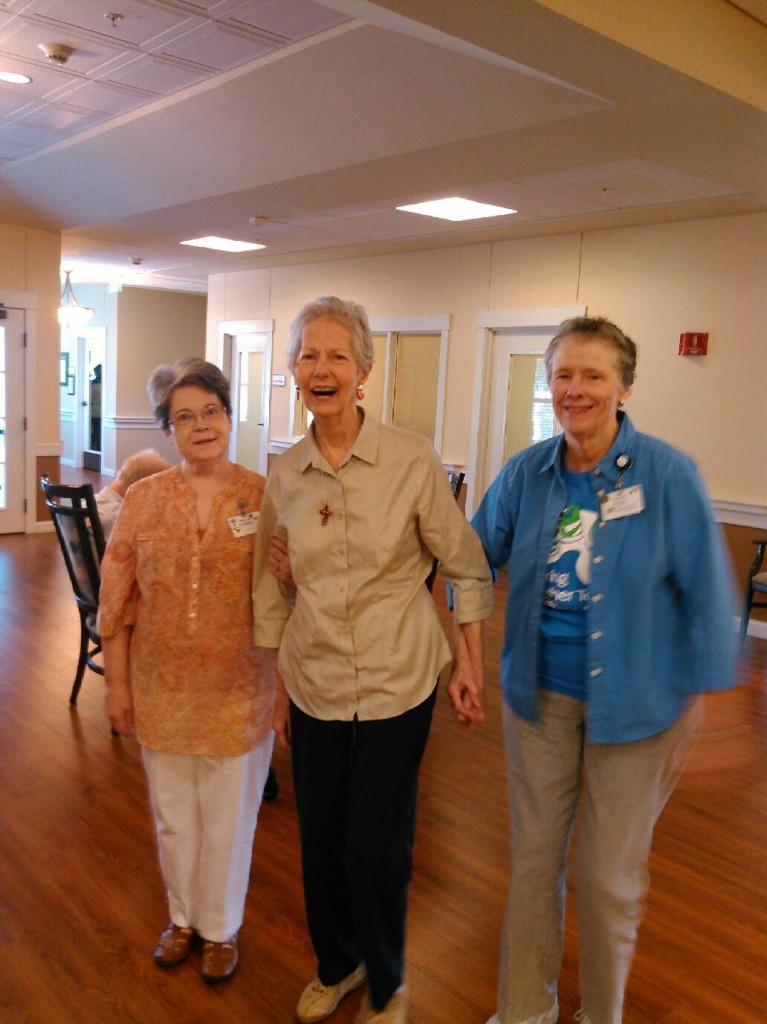
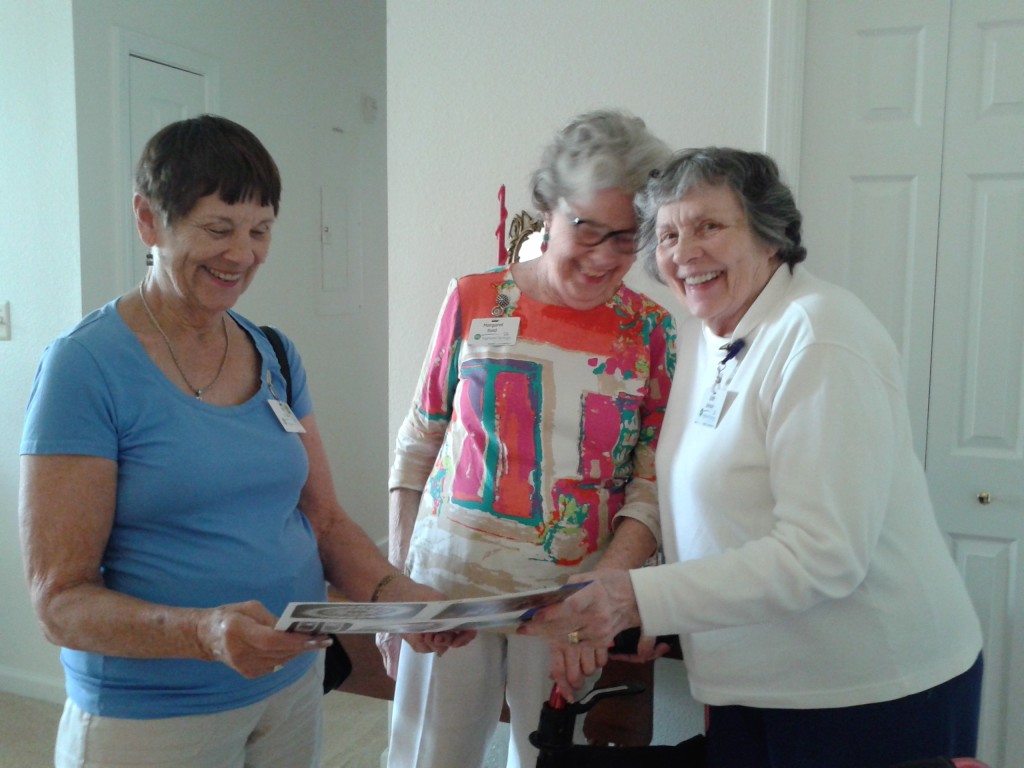
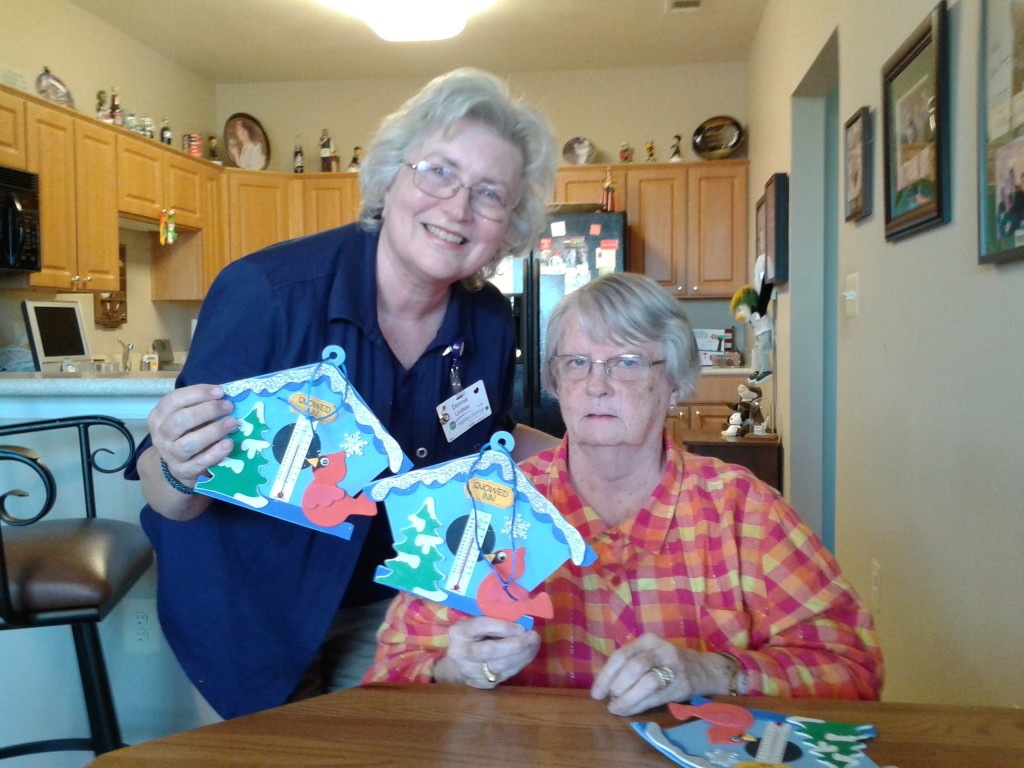
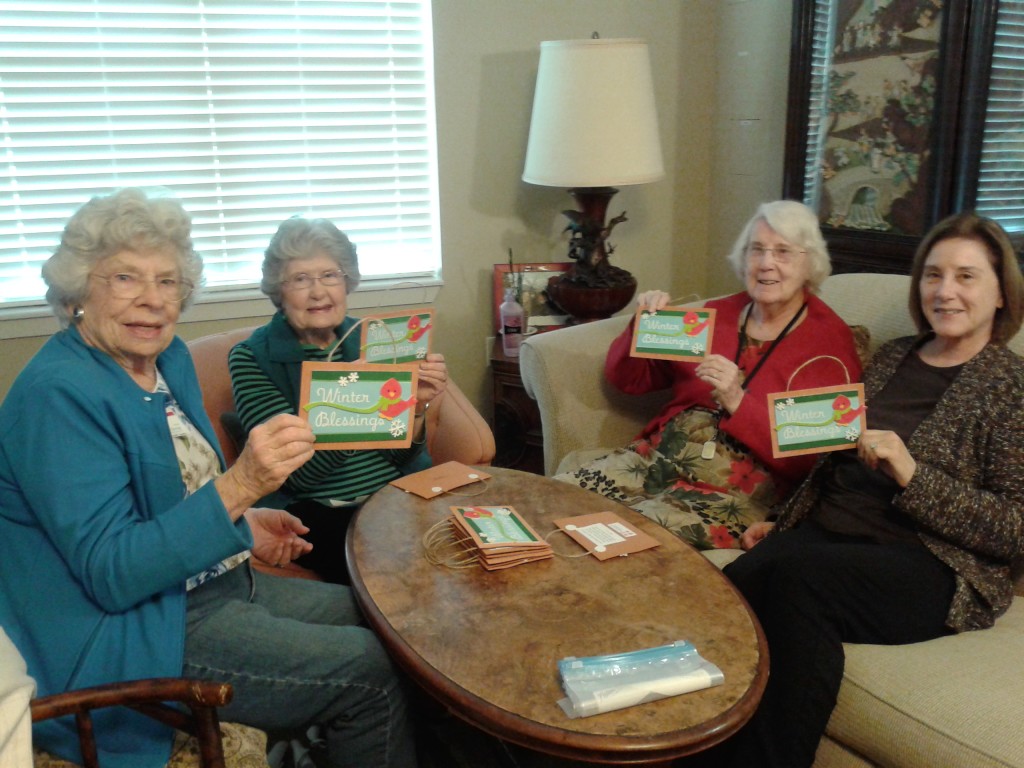
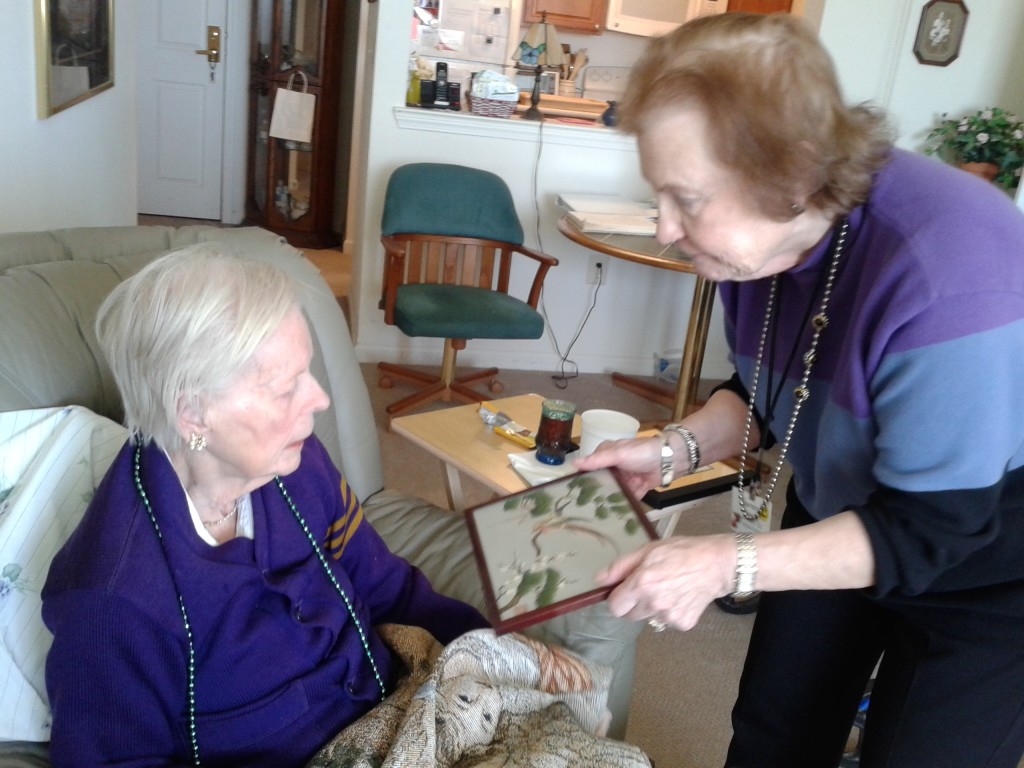
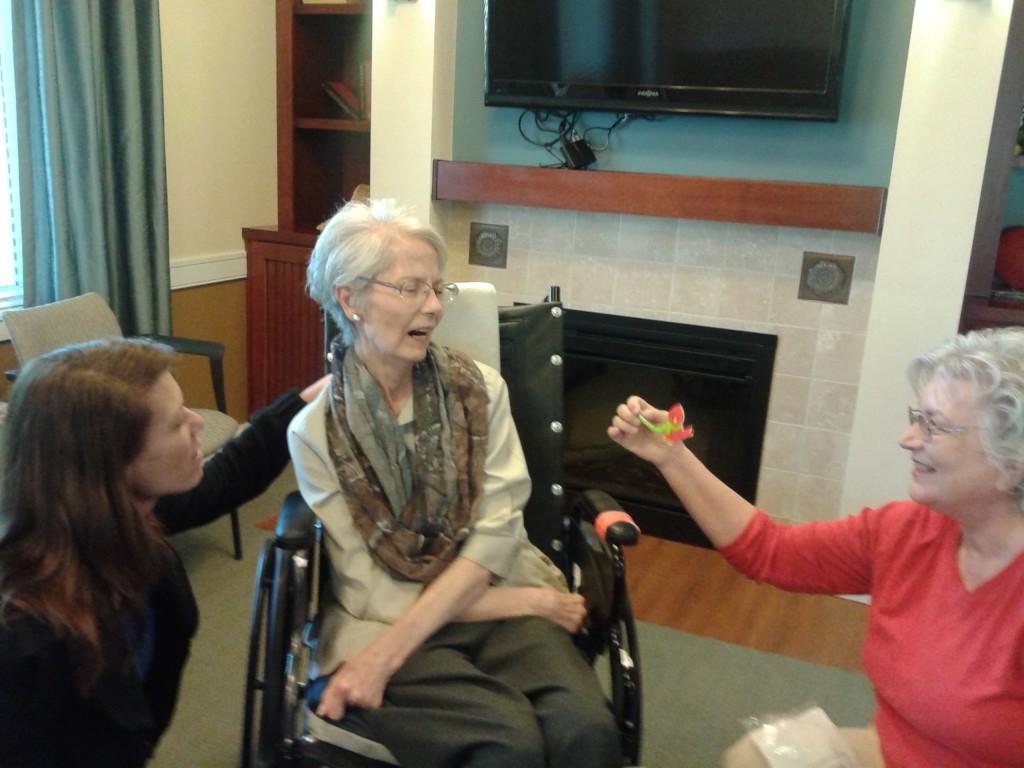
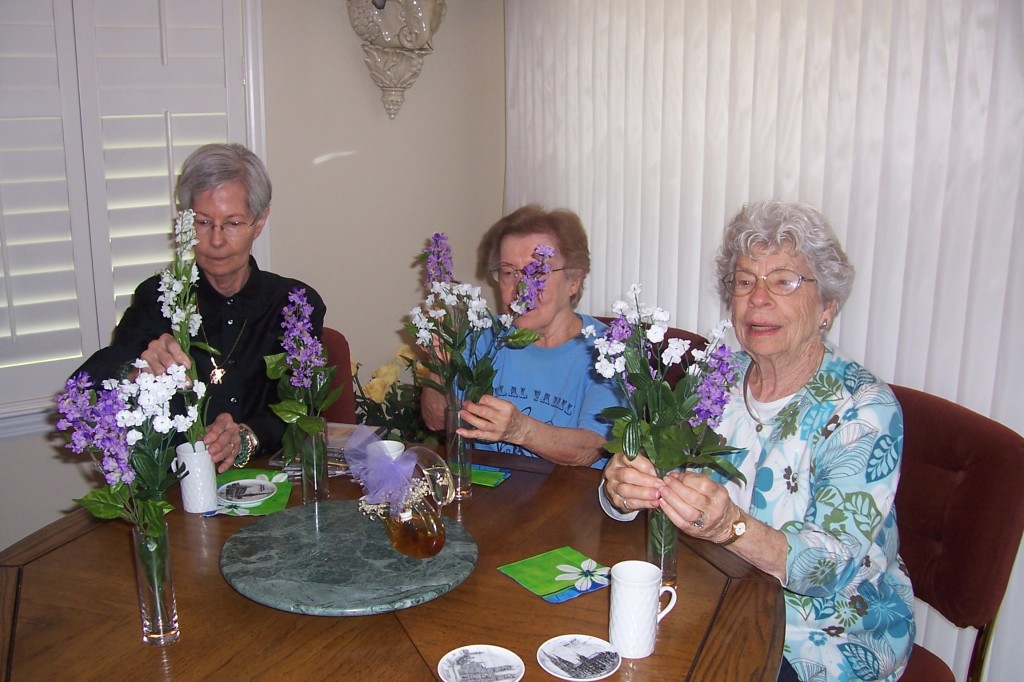
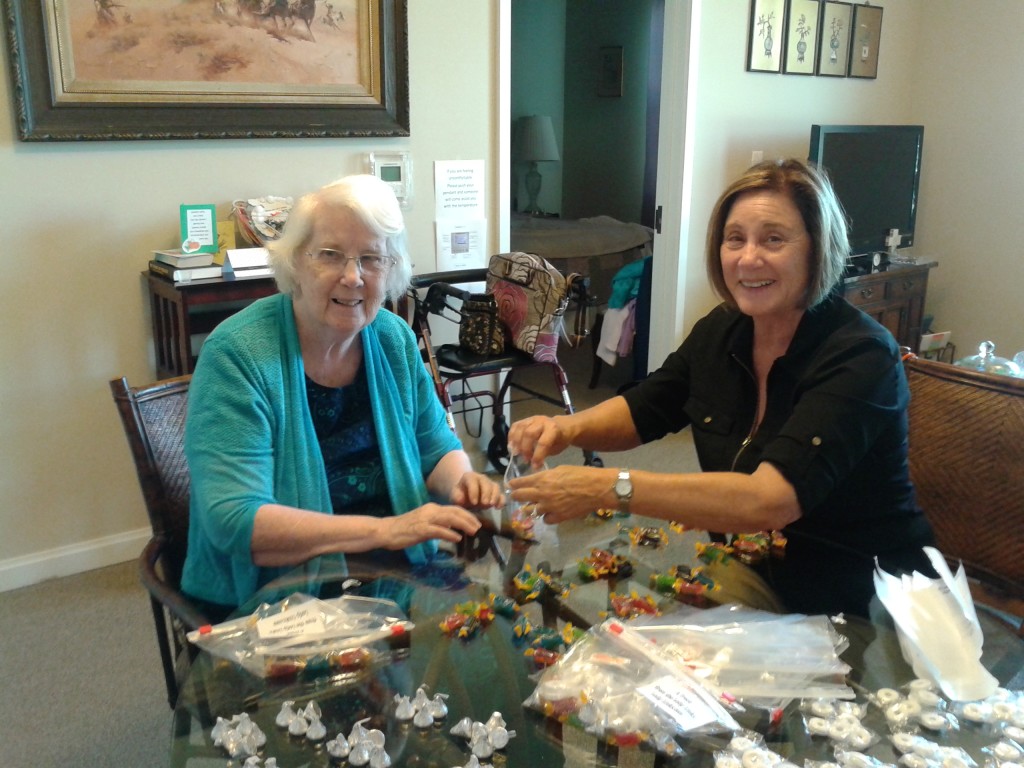
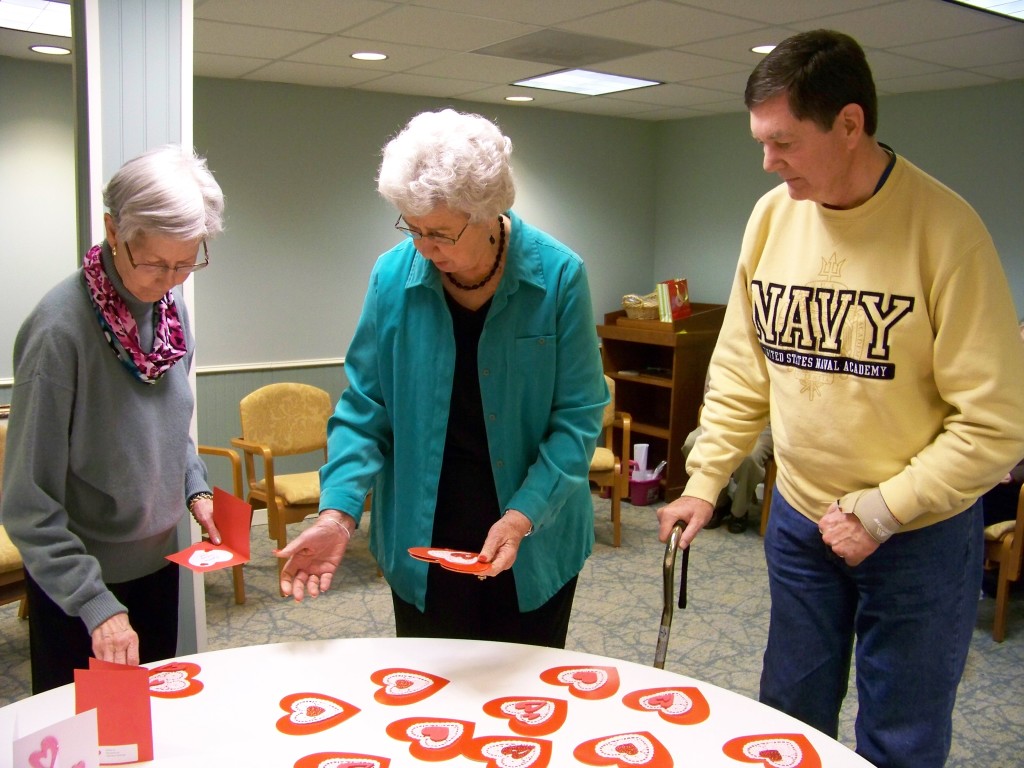

This is outstanding! You are doing a great job an extra support for the patients, who otherwise rely mostly on their family members and caregivers. Somebody coming out of this domain and just as friends, who chithat and have fun with them, can make a huge difference to their emotional and general health.
Donna Branton recently posted…Hello world!
Thank you, Donna for your insightful comment. We feel that we are making a positive difference in their lives, and their family members/caregivers tell us that we are. We benefit as well because we enjoy what we are doing and we truly have established strong bonds of friendship with these precious ladies.